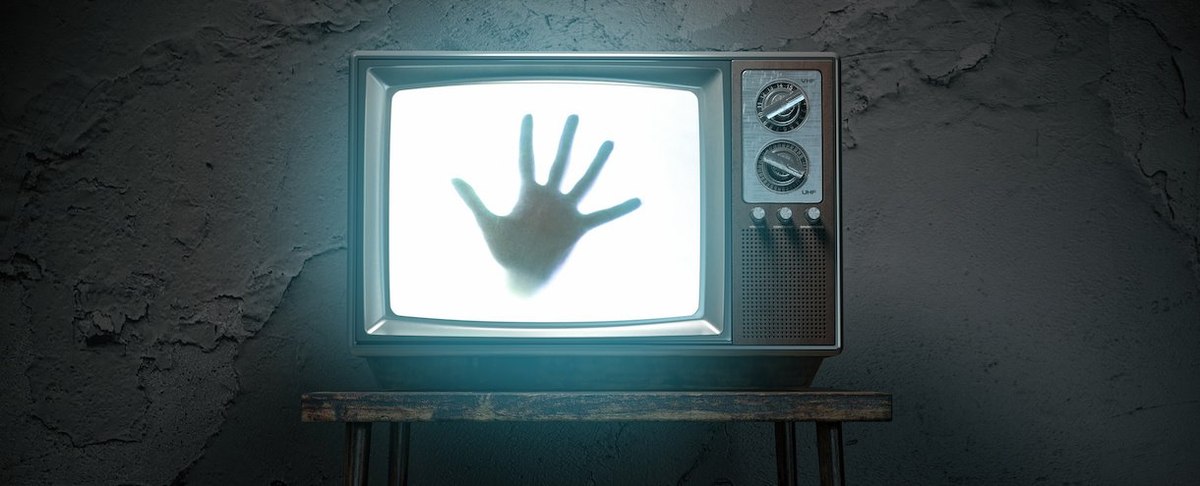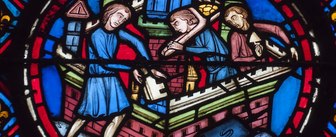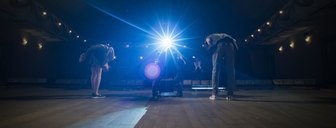No movie genre divides Americans quite like horror does: One in four people love it, and the proportions who like it, dislike it, and hate it are about the same, according to a recent poll by YouGov, which asked a nationally representative sample of 1,000 U.S. adult citizens to rank 10 genres of film. More than twice as many people hate the genre than hate any of the other nine polled. But people who enjoy horror are more likely to say they love it than are fans of any of the other genres polled.
Americans who grew up in the peak horror period of the 1980s — or just before or after — are among the most die-hard fans of the genre. The most preferred way to watch horror is at night and with other people. But this shouldn't be too hard to accomplish for horror fans, most of whom say they share their love of the genre with a partner or parent — or both.
The poll asked Americans to say whether they love, like, dislike, or hate 10 genres. Of these, horror has the smallest number of people who collectively love or like it (49%) as well as the largest share of people who hate or dislike it (45%). And people who dislike horror really dislike it: More than twice as many Americans (23%) say they hate horror as hate the next most hated genres, each hated by 9% of Americans — Western, science fiction, and romance. At the same time, people who are fans of horror tend to love it. A larger share of horror fans — people who like or love horror — say they love the genre than is the case for any other genre. Another way of looking at it: Nearly half of Americans love or hate horror, a greater share than for any of the other nine polled.
Who are horror's biggest fans? Age is one dividing factor: The genre is most popular among people between the ages of 30 and 44, many of whom would have grown up in the 1980s and early 1990s, a time seen by many as the height of American horror. Twice as many people in this age group (64%) love or like the genre than hate or dislike it (33%). Americans who are 65 or older are least likely to be fans of horror: Only 26% say they enjoy it, compared to 66% who don't.
Unlike true crime, which a recent YouGov poll revealed was liked by a greater share of women than men, gender is less of a dividing factor when it comes to horror. Men (52%) are more likely than women (46%) to say they love or like it and less likely to say they hate it (19% vs. 27%). Education is also tied to opinions on horror: People with only a high school degree or less are nearly three times as likely as people with a college degree to love horror.
Horror movies aren't known for receiving glowing reviews by critics: According to one analysis of reviews on the website Metacritic, horror movies receive the lowest average critic rating out of 10 genres analyzed. While this may be viewed as evidence by horror fans that the genre is underrated, Americans overall disagree: Only 18% believe horror movies are underrated by critics, while 26% believe they are accurately rated, and 26% believe they are overrated. The only genre that a larger share of people believe is overrated is romance (30% say it's overrated).
Horror lovers, on the other hand, are far more likely to believe critics underrate the genre (37%) than overrate it (15%). People who simply like horror but don't say they love it are also more likely to think it's underrated (24%) than overrated (17%).
As the horror genre has evolved over time, various subgenres have ebbed and flowed in popularity. Among 10 of horror's subgenres polled about, three stand out as loved or liked by the most Americans: 55% say they enjoy psychological horror, 55% enjoy comedic horror, and 52% enjoy paranormal horror. Following these three in popularity are horror movies with vampires (50% enjoy), monsters (47%), and witchcraft (46%).
Among the least favored horror subgenres are demonic possession (38%), slasher (36%), and gore (35%). The smallest share of Americans (35%) say they enjoy found footage horror films, though this is in part because a large share of people (28%) have not heard of the subgenre.
One difference between Americans overall and horror lovers is their ranking of the subgenre of comedic horror. Among Americans overall, it ties for first place in the ranking of 10 subgenres, but among die-hard horror fans, it ranks second to last.
Another common debate among genre fans is over old-school and new-school horror. When asked for their opinion, more Americans say they prefer classic horror movies (32%) to newly released ones (21%). Half of people (48%) say they have no preference between the two. Horror fans are evenly divided: 27% prefer classic movies and 23% prefer new ones. Among people who dislike the genre, far more prefer the classics (48%) than favor new movies (14%).
Love them or hate them, horror movies evoke a strong reaction from most Americans. In an earlier poll, we asked people to tell us in their own words why they do or do not enjoy horror movies. Based on these responses, we developed a list of 10 feelings that horror might evoke and asked Americans who have experience watching horror to select as many as they feel apply them.
Compared to people who dislike horror, fans of the genre are more likely to say horror movies fill them with suspense (56%), thrill them (37%), or give them an adrenaline rush (44%). People who dislike horror, on the other hand, are more likely to say horror movies disturb them (40%), make them anxious (34%), or make them uncomfortable (33%). Regardless of whether people love or hate the genre, few say it makes them feel bored.
What is the ideal setting to view a horror movie? For many Americans, it's during the same time of day that horror movies are frequently set: at night. Twice as many Americans say they prefer watching horror movies at night (44%) than say during the day (18%). While horror fans are especially fond of nighttime viewing, people who dislike the genre are evenly split: 34% prefer watching it at night and 36% prefer watching it during the day.
If they're going to face thrills and frights, most people prefer to do so in the company of others. By two to one, Americans say they prefer watching horror movies with other people (46%) rather than alone (21%). People who say they dislike horror are especially likely to prefer company when viewing it. Even though most Americans prefer not to watch horror alone, a majority of people — including both fans and non-fans alike — say they'd rather watch at home (64%) than in a theater full of people (22%).
Most horror fans are in luck when it comes to finding a viewing partner: 65% of people who love or like the genre say they have either a partner or a parent who also loves or likes horror. Three in five horror fans with a spouse or romantic partner (60%) say their partner is also a fan, while one in four (26%) say their partner dislikes horror. The opposite is true for people who dislike horror movies and have a partner: 60% say their partner shares their distaste, while 30% say their partner is a fan.
There is also a correlation between a person's preferences for horror and that of their parents. Among fans of the genre who don't say a question about either parent is not applicable to them, 40% say their mother also likes it and 41% say their father does. Among people who dislike horror and don't select "Not applicable" for each family member, 72% say their mother also dislikes it and 60% say their father dislikes it. Fewer are aware of their father's views towards horror than of their mother's.
Respondents also perceive their parents as having similar preferences to one another when it comes to horror: 63% of people who say their father enjoys horror say the same about their mother.
— Carl Bialik, Allen Houston, and Linley Sanders contributed to this article.
This poll was conducted on October 12 - 14, 2022, among 1,000 U.S. adult citizens. Explore more on the methodology and data for this poll.
Image: Adobe Stock (Maksym Yemelyanov)













